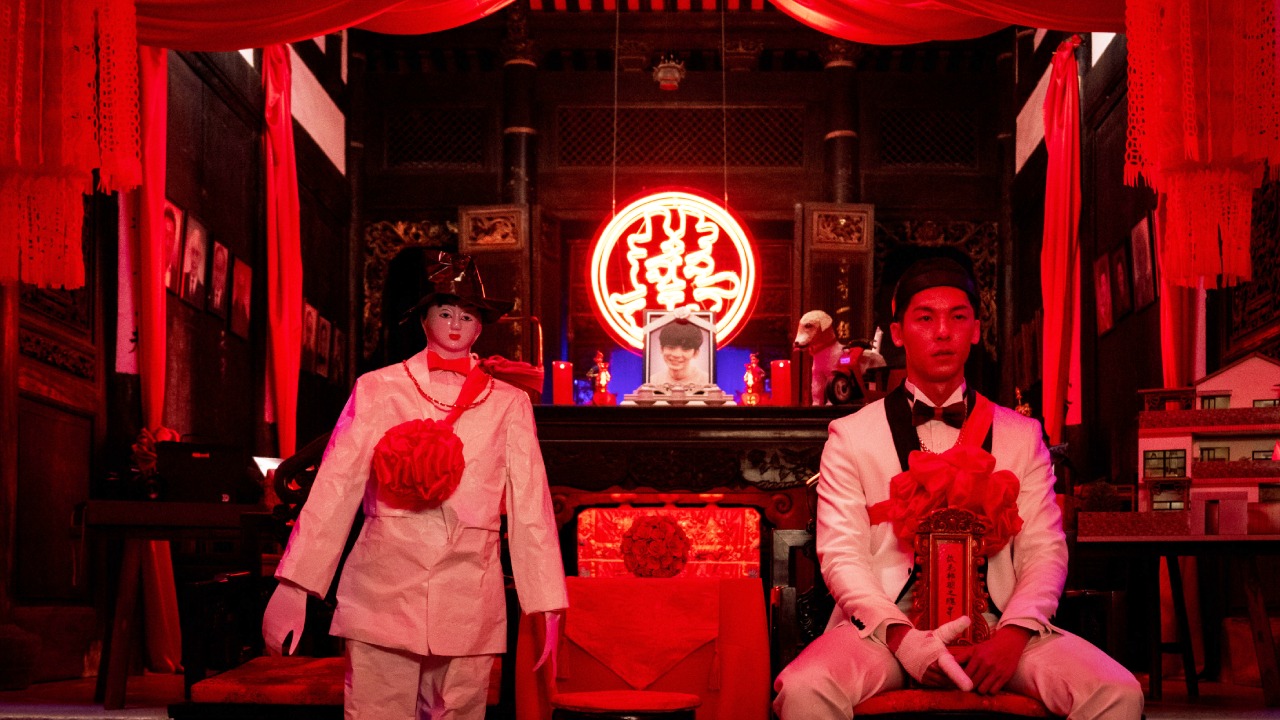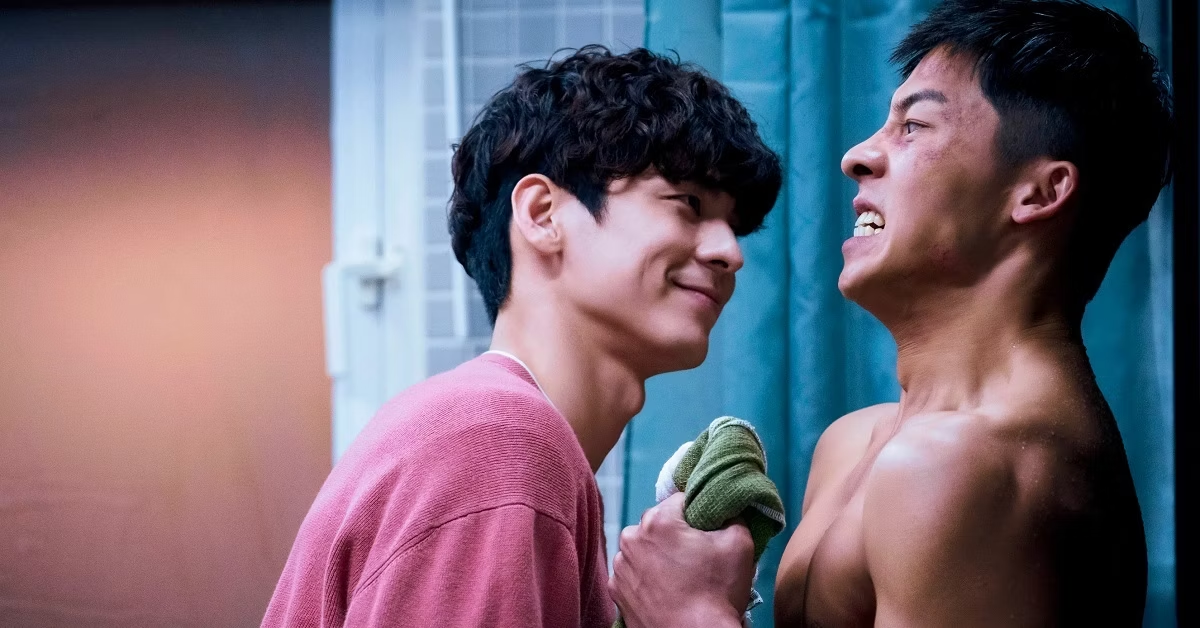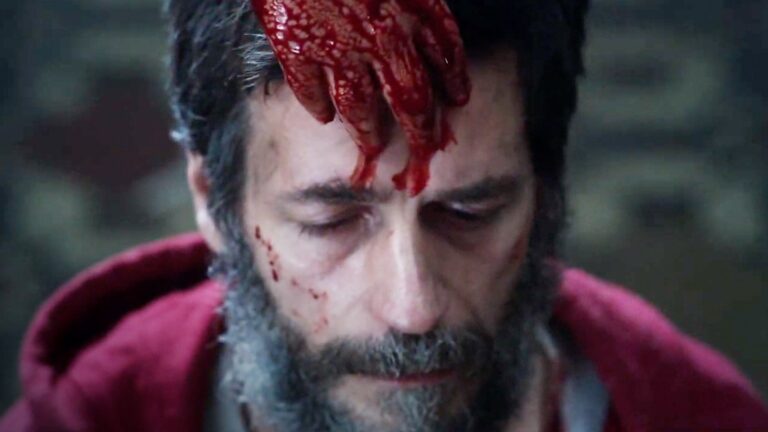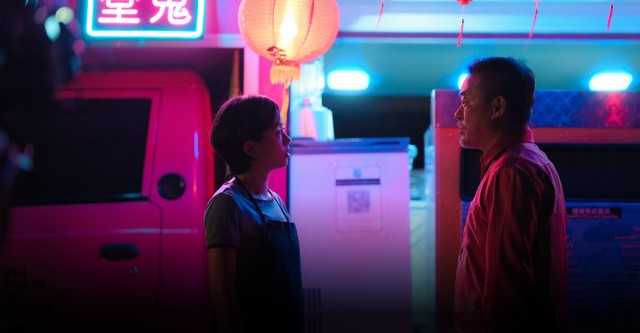Review of Marry My Dead Body (2023)
In the heartwarming and quirky tale of Marry My Dead Body, a homophobic, ghost-fearing police officer named Wu Ming-Han (played by Hsu Kuang-Han) stumbles into an unexpected predicament. While investigating a case, he picks up a red envelope, only to be ambushed by strangers who declare him their son-in-law. They demand he marry their deceased son, Mao Mao (Austin Lin), a ghost who died unjustly in an accident. Wu Ming-Han flatly refuses, but from that day, a string of bad luck—courtesy of Mao Mao—plagues him. To break free, he reluctantly agrees to live with his ghostly “husband,” teaming up to solve crimes, seek justice for Mao Mao’s death, and even crack a major drug smuggling case in Taiwan. Their journey is a rollercoaster of laughter, tears, and unexpected bonds.
Meaningful Themes
Homophobia
First and foremost, Marry My Dead Body tackles homophobia with a gentle yet profound touch. It’s a rare film that addresses societal prejudice in a way that feels both meaningful and approachable. Wu Ming-Han starts as a bigot but transforms through his bond with Mao Mao, becoming a true ally. Similarly, Mao Mao’s father evolves from rejection to unconditional love for his son. The film underscores that only family can offer such boundless devotion, making its message resonate deeply.
Same-Sex Marriage
A review of Marry My Dead Body would be incomplete without discussing its take on same-sex marriage. In a pivotal moment, Wu Ming-Han tells Mao Mao that marriage is just paperwork—something that can be undone with divorce. Mao Mao counters with a heartfelt realization: for him, marriage means having someone to love and care for forever. The film emphasizes that no force binds two people together; legal recognition of same-sex marriage grants rights and commitments, but it’s the choice to stay through life’s ups and downs that matters most. Wu Ming-Han’s words capture this beautifully—marriage is fleeting on paper but eternal in devotion.
Yet, the film doesn’t shy away from harsh realities. Mao Mao’s father shares a painful regret: he opposed Mao Mao’s relationship with his boyfriend, Chen Chia-Hao, after witnessing Chen’s infidelity. Had he stayed calm and talked it out, tragedy might have been avoided. Later, it’s revealed that Chen never considered marriage with Mao Mao, viewing their relationship as one-sided. When Mao Mao dies, Wu Ming-Han confronts Chen, asking if he feels no grief—only silence follows. This drives home the film’s core: marriage matters, but genuine love is paramount. Without it, any union becomes a source of pain.
The story hits hard, blending parental love, betrayal, and unrequited devotion. Watching Mao Mao’s heartbreak over Chen’s cheating evokes universal pain—loving someone wholly, only to face bitterness in return.
Bond Between the Leads
The connection between Wu Ming-Han and Mao Mao isn’t a typical romance but a soul-deep friendship. From Mao Mao’s smitten glance at Wu Ming-Han in a bar to his tearful moments under a bridge or before reincarnation at a hospital, their bond transcends labels. Though Wu Ming-Han is explicitly straight, the film hints at a flicker of mutual affection—not as lovers, but as kindred spirits. These raw, emotional scenes make their relationship feel more profound than mere friendship or romance.
Environmental Awareness
Though a minor thread, the film subtly weaves in a message about protecting the environment, adding another layer to its thoughtful narrative.
Strengths
Marry My Dead Body stands apart from typical queer romance or boy-love stories. It frames same-sex marriage as equal to any other, complete with betrayal, heartbreak, and indifference—challenges that mirror heterosexual unions. The film also highlights the unique struggles of same-sex couples, who often face steeper hurdles to commitment. What sets it apart is that Wu Ming-Han and Mao Mao aren’t lovers; their friendship defies stereotypes, suggesting that straight and queer men can share a rare, deep bond—a refreshing take in queer cinema.
The film masterfully blends tragedy, comedy, and a dash of horror, with no element overpowering the others. Every piece fits seamlessly, creating a cohesive and unforgettable experience that never feels cheap or uneven.
Weaknesses
If there’s a flaw, it’s the visual effects, which can feel clunky and unintentionally funny. But since the film prioritizes its heartfelt script over flashy visuals, this is easily overlooked for most viewers.
Another oddity is the absence of Wu Ming-Han’s family. They’re barely mentioned, which feels jarring given the focus on Mao Mao’s family dynamics. While the story centers on Mao Mao and Wu Ming-Han, a brief nod to Wu’s background could have added depth.
Lastly, the crime-solving aspect feels shallow and occasionally illogical. The investigation seems like a plot device to unite the leads rather than a fully fleshed-out thread. For viewers who don’t mind a loose detective story, this won’t detract from the emotional core, but it’s a noticeable weak spot.
Overall
Marry My Dead Body (2023) is a gem that balances humor, heart, and social commentary with finesse. It’s not a typical romance or crime drama but a celebration of human connection—between friends, family, and even ghosts. For anyone seeking a film that’s equal parts moving and entertaining, this is a must-watch.





